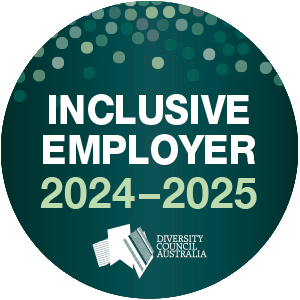13 September 2018
On Monday 3 September, the Centre for Non-Violence (CNV) launched its Making aMENds Program to support fathers who have used family violence to make better choices in their relationships. The 16-week pilot program, funded by the Victorian Department of Justice and Regulation, focusses on the child/father relationship and invites men to consider the impact their violence has on their children as well as their current/former partner. By supporting the recovery of children from family violence, mothers are better supported to recover from violence too. The voices of women, and especially children, are heard all throughout the program and these affected family members can choose to participate in the process with the support of a Family Liaison worker.
Dr Katie Lamb, a researcher on the ‘Fathering Challenges’ project with the University of Melbourne, has interviewed many children and young people whose fathers have used violence. Dr Lamb was at the program launch and says “children’s perspectives on their relationship with fathers who use violence rarely figure in the research literature or in the legal processes dealing with family violence. But when I came to talk to them I was blown away by exactly how strong their views were, whether it was an older young person or a child as young as a nine-year-old,” says Dr Lamb. “They all in some way wanted their fathers to acknowledge that what they had done was wrong and apologise.”
While this whole-of-family response to violence is a more recent concept for many family violence services and advocates in Australia, the Centre for Non-Violence in Bendigo, Victoria has been running tailored services for decades for women, youth, children and men who have been affected by or used family violence..
The Making aMENds Program is the product of several years research, says Project Coordinator, Lisa Levis. “Since 2014, we’ve been running focus groups with men and women about their needs and concerns after family violence has occurred and continually reviewed our services, particularly what happens for men after completing one of our Men’s Behaviour Change Programs.
We found that in many cases, children were still in contact with their fathers who’d used violence and that they wanted to maintain a relationship with their fathers. We found that by engaging with men as dads, not just violent partners, we could provide new motivation for men to be better fathers” says Ms Levis.
Having produced these reports, along with extensive research into a variety of parenting programs and models, such as Kids First’s Caring Dads and David Mandel’s Safe and Together Model, CNV was more than ready to submit a comprehensive submission for the Perpetrators Innovation Grants Program funding when the grant round opened.
While holding men to account at all times for their behaviour, Making aMENds will apply narrative therapy techniques and draw from restorative justice principles. “Men who often use their identity as a guard will be asked to explore a different story for themselves and see through the lens of their child’s experience” says Ms Levis.
Women and children will have their needs assessed and can choose to lead the restoration of relationships. “This is a fluid process guided by the Family Liaison worker and may be presented to the man through the collective voices of children who’ve been deidentified” says Ms Levis.
Evaluations will be conducted with each family member during and after the program runs, to measure what is working and not working for families. Ms Levis is confident the program will fill a current service gap for children and mothers needing long-term support, well after the violence has stopped. As for the men, they are given the chance to do things differently.
It is different approaches like Making aMENds that are needed to complete a broader picture of interventions from our services, systems and community to support men to stop using family violence.
The Centre For Non-Violence, which is a member of No to Violence, is now taking enquiries for the program.
For more information, please phone (03) 5430 3000 or email makingamends@cnv.org.au








